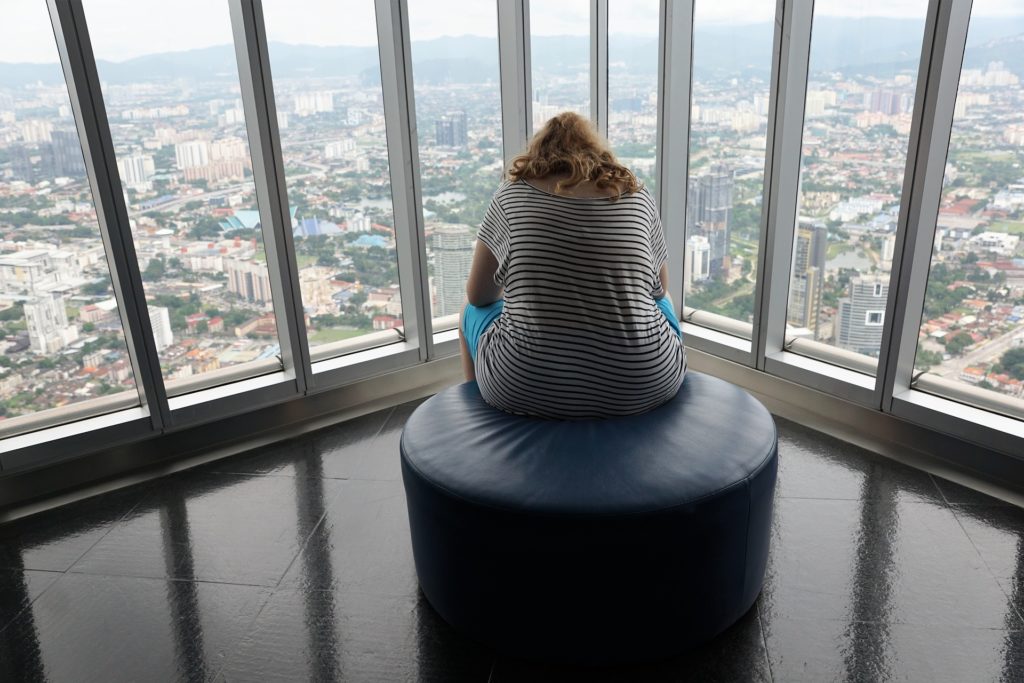
Contributor: Staff at Sierra Tucson
The ongoing COVID-19 pandemic has undoubtedly affected the mental health of people across all populations. This is especially true for LGBTQ+ individuals who tend to face challenges such as social stigma, trouble coming out and housing insecurity related to one’s gender identity.
Research conducted before the COVID-19 pandemic began found that people who identify as LGBTQ+ are at a greater risk for developing substance use disorders and co-occurring mental health disorders [1].
Recent studies on the effects of pandemic-related lockdowns and social distancing measures back this up, finding that LGBTQ+ people ages 18-29 drank more alcohol as a result of those restrictions than cisgender, straight individuals [2].
Call Sierra Tucson for Help 844-203-4784
The Impact of COVID-19 on Mental Health
Isolation as a result of imposed pandemic restrictions has had a negative impact on many people’s psychological well-being. One study says that self-isolation and COVID-19 lockdown restrictions caused most people’s mental health to deteriorate [3]. This can be due to a lack of freedom or separation from friends, family and other loved ones, as well as feelings of uncertainty and boredom.
According to another study, international online alcohol sales in 2020 increased 262% compared with sales in 2019. In the United States, 13% of adults said that they either drank or did drugs for the first time or increased their use as of June 2020. Additionally, alcohol consumption among American adults rose by 14% when compared with stats from before the pandemic [4].
COVID-19 restrictions have had a far greater impact on the mental health of LGBTQ+ people than on that of their straight, cis counterparts. Researcher John Salerno, who co-authored a study on LGBTQ+ students attending the University of Maryland, found that 35% of queer students and 46% of transgender female students self-reported an increased use of alcohol since the start of the COVID-19 pandemic [5]. LGBTQ+ individuals who engaged in greater alcohol consumption after the pandemic began have also struggled with greater psychological distress than those who did not drink more.
The Added Burden of Social Stigma and Inequality for LGBTQ+
Many LGBTQ+ people have been drinking more than straight or cisgender folks since the pandemic hit. But why? The prominence of alcohol and drug use among adults in the LGBTQ+ community is due in large part to the stress associated with the social stigma these individuals tend to face on a regular basis. Challenges like discriminatory laws, acts of violence and fear of rejection from loved ones due to an individual’s gender identity or sexual orientation lead some LGBTQ+ people to drink or do drugs to cope.
 For example, consider the effects of rejection from family on an LGBTQ+ person. According to Salerno’s study, adolescents and young adults who face rejection from loved ones because of their identities are eight times more likely to attempt suicide and six times more likely to experience symptoms of depression than those whose families are more accepting [5].
For example, consider the effects of rejection from family on an LGBTQ+ person. According to Salerno’s study, adolescents and young adults who face rejection from loved ones because of their identities are eight times more likely to attempt suicide and six times more likely to experience symptoms of depression than those whose families are more accepting [5].
Coronavirus control measures designed to limit the spread of the virus have forced a lot of young LGBTQ+ individuals to stay in unsupportive and potentially unsafe living conditions. Instances like this are directly linked to an increased risk for drinking or doing drugs, showing symptoms of another mental health condition and having suicidal tendencies.
Those within the LGBTQ+ population are already disproportionately affected by other mental health disorders, such as depression, posttraumatic stress disorder (PTSD) and anxiety, and the pandemic has amplified symptoms of these behavioral health conditions.
Substance Use Treatment Options for LGBTQ+ People During the Pandemic
With the pandemic still ongoing, seeking help for an addiction can feel overwhelming. Scheduling a visit with your primary care provider and addressing any concerns you may have about developing an addiction to alcohol or drugs is one way to start. They can conduct a quick examination to evaluate your current health standing and refer you to a treatment center near you. Or you can search for local addiction treatment centers and find out what kind of treatment they provide to help patients meet their recovery goals.
While in-person treatment options are still widely available, online support groups and telehealth services can be more accessible options for those who are seeking addiction treatment during the pandemic. Digital mental health services like telehealth visits and therapy sessions over Zoom or Skype allow you to access addiction and mental health treatment services from the safety and comfort of the location of your choice. All you need is a camera-enabled device, internet access and a private place to take part in your therapy sessions.
Whatever option you choose, don’t wait. If you think that you’re struggling with drug or alcohol use, reaching out for professional help is the first step toward recovery.
References
[1] U.S. Department of Health and Human Services. (2021, September 23). Substance Use and SUDs in LGBTQ* Populations. National Institutes of Health. Retrieved February 25, 2022, from https://nida.nih.gov/drug-topics/substance-use-suds-in-lgbtq-populations.
[2] Scroggs, B., Love, H.A., & Torgerson, C. (2020, October 28). COVID-19 and LGBTQ Emerging Adults: Risk in the Face of Social Distancing. Emerging Adulthood. Retrieved February 28, 2022, from https://journals.sagepub.com/doi/10.1177/2167696820968699?icid=int.sj-full-text.similar-articles.
[3] Yao, H., Chen, J.H., & Xu, Y.F. (2020, April). Patients with mental health disorders in the COVID-19 epidemic. The Lancet Psychiatry. Retrieved February 28, 2022, from https://www.ncbi.nlm.nih.gov/pmc/articles/PMC7269717/.
[4] Pollard, M.S., Tucker, J.S., & Green, H.D. (2020, September 29). Changes in adult alcohol use and consequences during the COVID-19 pandemic in the US. JAMA Network Open. Retrieved February 28, 2022, from https://jamanetwork.com/journals/jamanetworkopen/fullarticle/2770975.
[5] Salerno, J.P., Devadas, J., Pease, M., Nketia, B., & Fish, J.N. (2020, October 7). Sexual and gender minority stress amid the COVID-19 Pandemic: Implications for LGBTQ Young Persons’ Mental Health and Well-Being. Public Health Reports. Retrieved February 28, 2022, from https://journals.sagepub.com/doi/full/10.1177/0033354920954511.
About Our Contributor:
 Located in Tucson, Arizona, Sierra Tucson is the nation’s leading residential and outpatient treatment center for substance use disorders, trauma-related conditions, chronic pain, mood and anxiety disorders, and co-occurring concerns. We provide integrated, holistic care for adults age 18 and older of all genders, including specialized programs for military members, first responders, and healthcare workers. Sierra Tucson was ranked No. 1 in Newsweek’s list of Best Addiction Treatment Centers in Arizona for 2020.
Located in Tucson, Arizona, Sierra Tucson is the nation’s leading residential and outpatient treatment center for substance use disorders, trauma-related conditions, chronic pain, mood and anxiety disorders, and co-occurring concerns. We provide integrated, holistic care for adults age 18 and older of all genders, including specialized programs for military members, first responders, and healthcare workers. Sierra Tucson was ranked No. 1 in Newsweek’s list of Best Addiction Treatment Centers in Arizona for 2020.
The opinions and views of our guest contributors are shared to provide a broad perspective of addictions. These are not necessarily the views of Addiction Hope, but an effort to offer a discussion of various issues by different concerned individuals.
We at Addiction Hope understand that addictions result from multiple physical, emotional, environmental, and genetic factors. If you or a loved one are suffering from an addiction, please know that there is hope for you, and seek immediate professional help.
Published on March 11, 2022
Reviewed by Jacquelyn Ekern, MS, LPC on March 11, 2022
Published on AddictionHope.com
